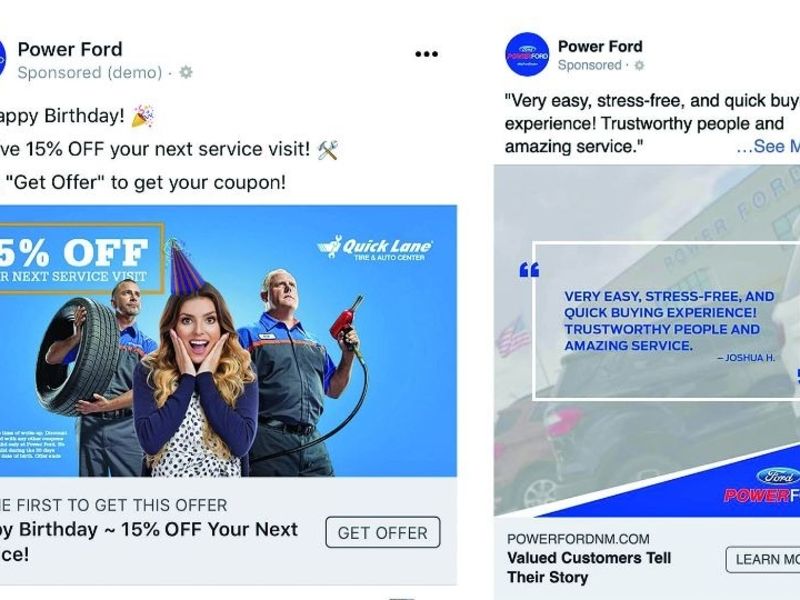
A well-timed decision to shift from radio and TV ads to Facebook drove a surge in sales for Power Ford, helping the Albuquerque, N.M., dealership connect with homebound consumers as the coronavirus pandemic hit.
After a management change in mid-2017, the dealership moved thousands of advertising dollars to the social networking site. By partnering with Dealers United, a vendor that helps dealers with online data and advertising, Power Ford began paying for targeted ads showcasing its vehicles to nearby consumers who are in the market to buy. The ads pop up on their news feeds based off their recent online search history.
The results have been impressive.
In 2019, the dealership increased sales 8 percent year over year — vs. a 3.2 percent decline in its local market — and spent 21 percent less on advertising. It sold 1,576 new vehicles last year.
Once a bit player in its market, Power Ford has been the top-selling Ford dealership in New Mexico for seven months over the past two years, including May, when more than half of customers who purchased a vehicle either saw or clicked on a Facebook ad.
While sales are down so far in 2020 because of the pandemic, Power Ford has continued to outperform the region, the dealership says. In recent months, it accelerated the shift to Facebook, completely slashing its radio and TV ad spending to focus solely on the social media site at a time when many consumers were under stay-at-home orders.
“It 100 percent set us up,” Matt Sneed, Power Ford’s director of marketing and customer experience, told Automotive News. “We were able to pivot and accelerate our capturing of market share because we were already in the game. We just doubled down.”
The process started in 2018 with every vehicle in the store’s inventory being photographed. Using Facebook data, the dealership is able to target specific customers, whether they’re looking for service or to purchase a new vehicle, and present ads that cater to them.
Sneed says the store tries to personalize ads as much as possible and have fun with emoji and video snippets.
“You have to get the right message to the right shopper,” Sneed said. “If you’re going to put trucks out there, you have to target people who want trucks.”
Pete Peterson, CEO of Dealers United, said Facebook data and analytics can be more effective than traditional advertising mediums in converting interested shoppers into buyers. Aside from exceptions in certain markets, Facebook represents the best way to reach those potential customers, he said.
“You have to adapt to the times,” Peterson said. “Where consumers are consuming information, you have to move your message there. Right now, that’s Facebook and Instagram. You can reach, proactively, pretty much anyone in your local market that you want, and you can help them understand who you are, introduce your brand and move them to your dealership’s website and lot — and track it all the way digitally so you know if it’s working.”
Sneed says the pandemic, which temporarily closed many dealerships around the country and placed an increased emphasis on digital advertising and retailing, has shown that Power Ford made the right decision on where to spend its ad dollars.
Since the start of the year, the dealership has beaten its regional market new-vehicle sales average by about 12 percent, he said. Facebook is its top source of traffic, with about 28 percent of sales coming from its targeted ads.
About 130 sales in March and April came directly from social media ads.
“We’re still capturing market share,” he said. “People are home, they’re sitting on their computers, and every time they open Facebook, Power Ford is there.”